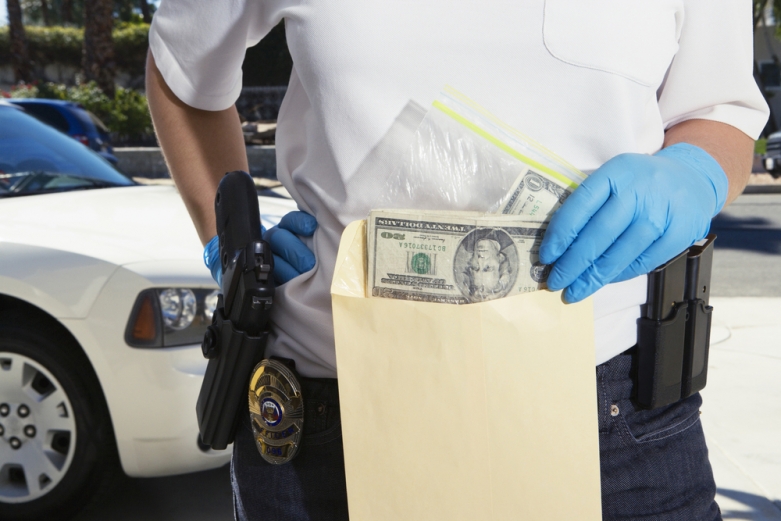Article Media

Sacramento - Today, Governor Brown signed a groundbreaking bill to limit civil asset forfeiture abuse in California, marking a significant victory for the larger asset forfeiture reform movement underway throughout the country. State lawmakers approved Senate Bill 443 last month with overwhelming, bipartisan support. The new law will go into effect Jan. 1, 2017.
SB 443, championed by Senator Holly Mitchell (D-Los Angeles) and Assemblymember David Hadley (R-Torrance), strengthens state protections by requiring a conviction in most cases before state and local law enforcement agencies may permanently keep people’s property. This conviction requirement addresses a gap in the law that currently allows state and local law enforcement agencies to bypass state law in favor of federal law, a practice that opens the door to abuse.
“For years, asset forfeiture abuse has wreaked havoc on innocent people throughout the country, especially people of color, immigrants, and low-income people who cannot afford to fight the government in court,” said Mica Doctoroff, legislative advocate, ACLU of California Center for Advocacy and Policy. “SB 443 will not only rein in the abuse in California, but also offers a blueprint for workable solutions to other states seeking reforms. We applaud Governor Brown for signing it.”
Federal civil asset forfeiture laws give the government permission to forfeit personal property without an arrest or conviction, allowing law enforcement to then keep what they take. California law, however, provides greater due process protections than federal law. Federal law does not require a conviction and places the burden on property owners to prove their innocence and fight to get their assets back – at their own expense. SB 443 curtails the circumvention of California asset forfeiture law. This strong reform offers a model to other states seeking to address such circumvention.
“By approving SB 443, California is taking aim at an appalling loophole that has let state and local law enforcement pad their budgets,” said Lee McGrath, Legislative Counsel, Institute for Justice. “Requiring a criminal conviction in most forfeiture cases is a common-sense approach to protecting the rights of the innocent, without jeopardizing public safety.”
According to a report by the Drug Policy Alliance, over the last ten years, there has been a threefold increase in the number of cases in which state and local law enforcement circumvented California law and used federal law instead, while state cases remained flat.
“Solutions like SB 443 give communities plagued by injustice some relief,” said Zachary Norris, Executive Director, Ella Baker Center for Human Rights. “Low income people simply do not have the means to hire an attorney to get their lawfully earned cash returned to them. When their money gets taken by law enforcement, it’s a family crisis affecting rent, food, everything."
A report by the ACLU of California found that more than 85 percent of payments made to California law enforcement agencies through federal forfeiture laws went to agencies policing communities in which people of color make up more than half of the population. Investigations have also uncovered that people of color, low-income people, and immigrant communities are disproportionately at risk of having their property forfeited.
“We are thankful to Governor Brown for signing SB 443,” said Joseph Villela, Director of Policy, Coalition for Humane Immigrant Rights of Los Angeles (CHIRLA). “In addition to providing due process to all Californians, the enactment of this bill would further restore trust between law enforcement and immigrant communities.”
Under SB 443
- Federal Cases: State and local law enforcement may only receive a share of forfeited property if there is an underlying conviction, or if the forfeited property is $40,000 or more in cash. Cash under $40,000 will require a conviction, as will vehicles, boats, homes, and other types of personal property regardless of their value;
- State Cases: Cash under $40,000 may only be forfeited if there is an underlying conviction, increasing the cash threshold from the current $25,000. Boats, vehicles, and homes will still require a conviction regardless of value.
SB 443 is co-sponsored by the ACLU of California, CHIRLA-Coalition for Humane Immigrant Rights of Los Angeles, the Drug Policy Alliance, the Ella Baker Center for Human Rights, and the Institute for Justice.
